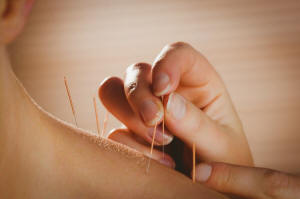The diseases

Several diseases have been researched, and acupuncture has been
found to be beneficial for some of them. Although there hasn't been
much evidence to support its use for pain management in acute
medical situations, it is one of the oldest methods of treating
pain. It possesses.
been mostly used to
- treat fibromyalgia
- menstrual cramps
- headaches
- low back pain
- nerve pain
and more in the United States and other Western nations. The way traditional acupuncture works is that when tiny needles are put at certain spots on the skin called acupoints,
the body releases endorphins, which are naturally occurring substances that reduce pain. Additionally, it's believed that acupuncture influences the area of the brain that controls. One of the main brain chemicals associated with mood is serotonin.
To increase the effects of Chinese acupuncture, the acupuncturist may gently rotate or twist the needles or administer heat or electrical stimulation.
In Japanese acupuncture, the needles are often inserted more superficially and are not often moved
Korean acupuncture
emphasizes using needles on certain places in the hands and feet.
The average treatment for modern acupuncture involves the insertion
of four to ten needles, which are left in place for ten to thirty
minutes while you rest, according to a recent assessment of the
practice published in Harvard Health beat. Typically, a three-month
therapy regimen consists of six to twelve sessions. Similar methods
like acupressure don't include needles. Deep pressure is applied to
acupressure points by the acupressure’s using their palms.
Acupuncture appears to have relatively low incidence of
complications. The most significant issue, according to a review of
acupuncture-related consequences documented in medical publications,
was the unintentional insertion of a needle into the fluid-filled
area between the chest wall and lungs.
referred to as the pleural cavity, yet this is uncommon.
How effectively then does acupuncture combat acute pain? To the
astonishment of many, recent large-scale randomized research reveals
that acupuncture is more effective than morphine for treating pain
in patients admitted to the emergency room.
A prospective, randomized study comparing acupuncture to morphine for the treatment of acute-onset moderate to severe pain involved 300 patients in the emergency room in Tunisia.
All of them experienced varying degrees of mild to severe discomfort. If someone wants to attempt acupuncture, they should look for an experienced practitioner.
Different states have different requirements for licenses.
Find an acupuncturist certified by the National Certification Commission in states where license is not required in favour of Oriental Medicine and Acupuncture.